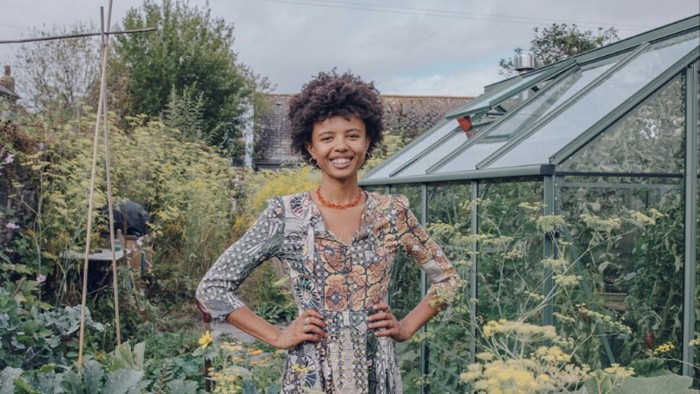Unlock the Editor’s Digest for free
Roula Khalaf, Editor of the FT, selects her favourite stories in this weekly newsletter.
I have a marvellous relationship with gardens. Friends and family across India from the Nilgiris to the Himalayas do the grunt work of tending and growing them, while I get to enjoy the fruits of their labour on leisurely summer visits.
While gardening books are perennially popular, gardening memoirs such as Olivia Laing’s 2024 bestseller The Garden Against Time have become a robust sub-genre since the pandemic — when we turned back to the land for solace in those lockdown years. “All across the world, people were engaged with a feverish new love affair with plants,” Laing writes, “Growing food is an instinct in times of insecurity, peaking during pandemics and wars. Gardening was grounding, soothing, useful, beautifying.”
Authors across generations from Britain’s great nature writer, Richard Mabey, who published The Accidental Garden last year in his eighties, to the former model and Devon gardener Poppy Okotcha, whose A Wilder Way came out this April, often reassess what these beckoning spaces can be. Gardens are a refuge, a lifeline, a return to the earth, but have also historically been, as Laing and others argue, a place of exclusion or an emblem of colonisation. As Mabey writes, pointing out the joys of immigrant plants and weeds alongside native flowers and trees in his Norfolk garden, “Gardens aren’t quite like other human spaces. They’re borderlands, possessed, designed and controlled by one species, but occupied by myriads more.”
For Okotcha, memories of her family’s tiny garden as they grew up in a “mouldy old bungalow” in Wiltshire, surrounded by miles of monoculture farms, are powerfully regenerative: “As the garden came to life, so did we.” After a brief career as a fashion model, she stepped away from a culture that valued overconsumption to set up her own garden in Devon. In the book, and in her gardening philosophy, she draws on the cosmology of Nigerian folk tales along with old English lore. “The culture I grow my garden in may not value rest,” she writes in A Wilder Way, “but the culture the garden has grown in me worships it. Rest is radical because it allows life to regenerate.”
Reading over a score of gardening memoirs, I begin to appreciate how different writers choose to lay out their books. Okotcha offers a seasonal cycle, with its accompanying parallels for our calendars. Hortobiography, this spring’s offering from Carol Klein, the beloved English horticulturist, columnist and television presenter, starts with an arresting childhood memory: “I would bring in toy buckets full of soil into the kitchen and empty them on the kitchen lino, decorating the piles of soil with leaves and flowers.” She interleaves quick sketches of plants — poppies, foxgloves — with a moving account of her life, health challenges, and her outsize love for all the gardens she has known since childhood.
One of my favourites in this genre dates back to 1929, written by the anti-fascist Czech writer Karel Čapek and illustrated by his equally spirited brother, Josef Čapek. I cried my eyes out as a child when I learnt that Josef Čapek — he and Karel together gave us the word “robot” — was sent to the concentration camp at Bergen-Belsen for his defiant cartoons, where he died some time in 1945. But they left behind the exuberant The Gardener’s Year (first translated by M and R Weatherall in 1931), cheerfully sending up the diligent figure of the gardener: “There is something peculiar about the weather; it is never quite right.” The Čapeks’ gardener, based on Karel’s own experiences, wrestles with recalcitrant garden hoses (“dangerous beast”), sifts through a hundred outlandish recipes for soil improvement, contorts like a pretzel, rump up to the sky, to sow seeds and reap a harvest of weeds. But as Karel wrote: “And yet, at the end of the day, the true gardener sighs with deep content: ‘I have sweated to-day!’”

Summer Books 2025
The best titles of the year so far — from politics, economics and history to art, food and, of course, fiction, FT writers and critics choose their favourite reads of the year so far
I return from my aunt’s 25-year-old garden in the Himalayas with a wealth of gifts; an abundance of rosemary and bay leaves, pine needle bookmarks, peace in my soul, and a hitchhiking beetle who is gently released into a flower bed, no worse for the long journey to the plains. Delhi is humid and polluted, but these memoirs — questioning, inspiring — seem to point the way forward. Gardening itself has become less rigid and controlling, more about inviting nature in, rewilding, encouraging biodiversity than the pursuit of perfection — and that has created room for the stories of the humans who do the gardening.
As Mabey writes in The Accidental Garden, “It would be glib to suggest that the immeasurably complex problems of a whole world are mirrored in the small confrontations and challenges of the garden. But maybe the mindset needed for both is the same: the generosity to reset the power balance between ourselves and the natural world.”
Join our online book group on Facebook at FT Books Café and follow FT Weekend on Instagram, Bluesky and X
